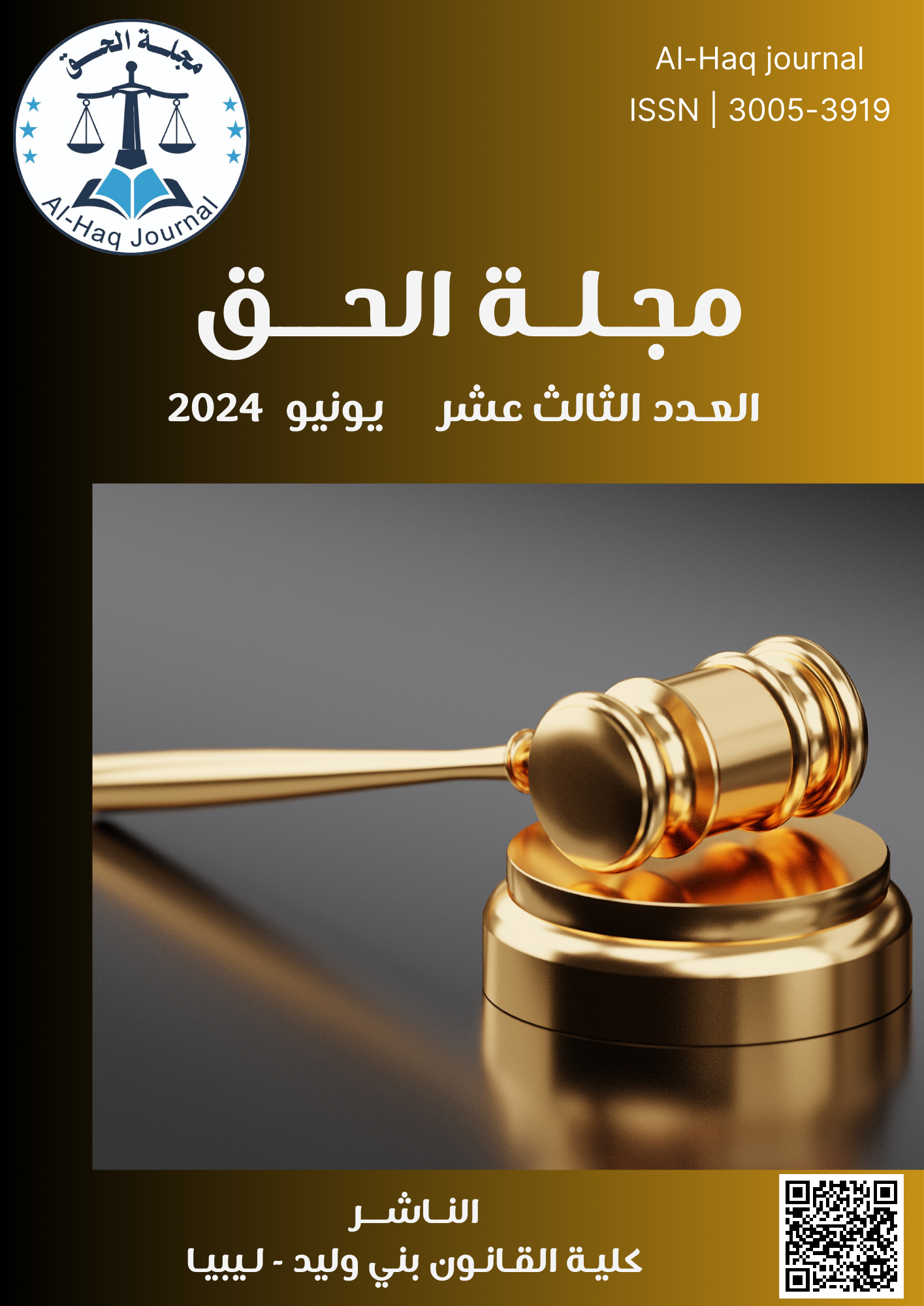Legal mechanisms to confront and reduce financial and administrative corruption
DOI:
https://doi.org/10.58916/alhaq.vi.299Keywords:
Legal mechanisms, financial corruption, administrative corruption, regulatory bodies, reducing corruptionAbstract
Corruption has spread in Libya, reaching levels and rates unprecedented in its size, diversity, and devastating effects on human life. There is no doubt that the exacerbation of this dangerous phenomenon exposes members of the government and public employees to severe criticism from various regulatory agencies, and it also leads to the loss of citizen confidence in the role. The effective and vital role that the administration and state institutions must play in the process of economic and social development.
In efforts to overcome this crisis, mechanisms have been put in place for oversight and follow-up, and penalties have been established for those who commit acts of corruption. The Libyan state has ratified the United Nations Convention against Corruption and the African Convention to Prevent and Combat Corruption. It has also signed the Arab Convention against Corruption, and enacted several laws that criminalize acts of corruption. In addition to these legislations of a criminal nature, legislations of an administrative nature were issued, Such as the State Financial Law and Labor Relations Law No. 12 of 2010, and the executive authority enacted contracts regulations, all to limit this phenomenon, and despite the efforts made internationally and internally - corruption has become a culture and part of the fabric of society and daily dealings, and its spread in a terrifying manner calls for research into the extent of its effectiveness. Mechanisms to combat it.
Downloads
Published
Issue
Section
License

This work is licensed under a Creative Commons Attribution-NonCommercial 4.0 International License.









